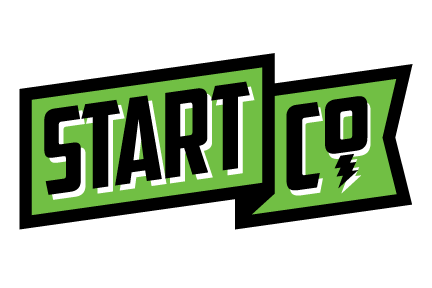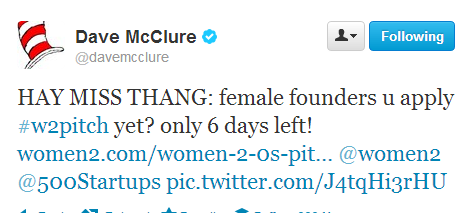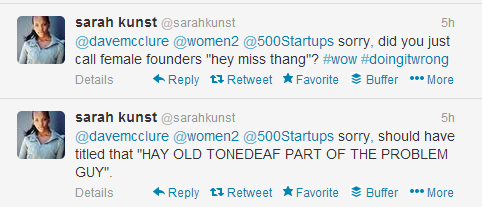

Investors. We love to talk about them, to watch what they’re doing, to know who they’re talking to. Even for startups choosing to bootstrap, investors can often have a lot of influence in the way you think about markets and ideas.
But, who should you listen to?
To help you figure that out, we made a list of the most influential investors to watch in 2014. With so many out there, we had a few criteria we used to decide who to include:
- Outside of Silicon Valley. Obviously, Nibletz is the voice of startups everywhere else! While we pay close attention to lots of Valley investors, like Paul Graham and Dave McClure, this list is specifically for investors who choose to live/invest everywhere else.
- We looked at CB Insights’ most active investor list from 2013.
- We considered the founders of active funds that are creating some buzz in the investing world.
- Personal brand. A lot of investors are active on Twitter or blog regularly. We took into account how each investor’s personal brand is growing.
Lists like these are always subjective, of course, but these are the investors we’ll be watching in 2014. (And you should, too!)
Co-founder of Reddit and New York based investor Alexis Ohanian is a prolific angel investor. His investments include Couple, Teespring, Crowdtilt, and Hubspot.
Andy Dunn is the co-founder and CEO of Bonobos and Red Swan. He’s based in New York, and his investments include Birchbox, Coinbase, Warby Parker, TaskRabbit, and Hailo.
Andy Weissman is also a partner at New York’s Union Square Ventures. He’s also the founder and COO of Betaworks. His investments include Twitter, Path, Codecademy, Bit.ly, Tweetdeck, Tumblr, and StockTwits.
As a Partner in the Vegas Tech Fund, Andy White lives and breathes Las Vegas. His investments show that: BoomStartup, DropShip, AngelList, and 500 Startups, among others.
Based in Boston, Bijan Sabet is another blogging VC with good industry knowledge. He’s the founder of Spark Capital, and his investments include Foursquare, OMGPOP, Tumblr, Twitter, and Runkeeper.
If you’ve been around the startup space for a minute, you’ve heard of Brad Feld. He literally wrote the book(s) on startup culture. Based in Boulder, his investments include Makerbot, Fitbit, Zynga, Mile High Organics, and Yesware.
As the cofounder and director of Groupon, Brad Keywell has been around the Chicago scene for awhile. As a cofounder and managing partner of Lightbank, he continues to invest in the area. His investments include Udemy, Zaarly, Boomerang, and Benchprep.
 Charlie O’Donnell–@ceonyc
Charlie O’Donnell–@ceonyc
Charlie O’Donnell is a New York based investor at Brooklyn Bridge Ventures. He blogs at This is Going to Be Big. His investments include GroupMe, Refinery29, editorially, and Chloe + Isabel
LA-based Chris Hollod manages A-Grade Investments, theVC fund Ashton Kutcher, Guy Oseary, and Ron Burkle. His major investments include Foursquare, Uber, Zaarly, Warby Parker, Chegg, Flipboard, and Dwolla.
Chris Sacca spends his time in Truckee, CA, where he’s the Managing Director of Lowercase Capital. He’s a prolific investor, but some of the big names include Uber, Kickstarter, Turntable.fm, Instagram, Path, Charbeat, and Facebook.
 David Cohen–@davidcohen
David Cohen–@davidcohen
As a founder/CEO of Techstars, David Cohen is well known for championing startups everywhere else. He’s also a blogging VC. A few of his investments include Twilio, Uber, Bondsie, and GroupMe.
David Tisch is former Techstars director, and he now helps run and invests through the Box Group. His diverse investments include Fab.com, ID.me, Boxee, IFTTT, AngelList, Kitchensurfing, and Skillshare.
Eric Hippeau was once the CEO of The Huffington Post. Now the New York-based investor is a partner at Lerer Ventures. His investments include Buzzfeed, Yahoo, The Huffington Post, and PandoMedia.
With his daily blogging about all things in the industry, it’s a no-brainer that Fred Wilson would land high on the list. Wilson is a managing partner at Union Square Ventures in New York. His portfolio includes Twitter, Zynga, Etsy and Disqus.
Greg Bettinelli is a venture partner at LA’s Upfront Ventures. He’s also the cofounder of the MuckerLab accelerator and has worked in leadership at eBay, StubHub, and HauteLook. His investments include Foodzie, Chromatik, and Trunk Club.
General Partner at Boston-based Charles River Venture, Izhar Armony has also had some big hits. He invested in Twitter and Yammer. His portfolio also includes Zynga, Zendesk, and Qualcomm.
Jeff Bussgang is a cofounder of UPromise and literally wrote the book on VC (Mastering the VC Game). The Boston/New York-based investor has invested in oneforty, Simple Tuition, Crashlytics, and SavingStar, among others.
The wife of Fred Wilson is a businesswoman and investor in her own right. Like her husband, she regularly blogs about startup life. Her angel investments include Daily Worth, Kitchensurfing, littleBits, LE TOTE, Blue Bottle Coffee, and Lover.ly
Joe Medved is a partner at Softbank Capital and an adviser at the Brandery. He also gave one of the most informative talks at Everywhere Else Cincinnati in October. Joe’s investments include Rap Genius, Thumb, CrowdTwist, and FlightCar,
Another fan favorite at Everywhere Else Cincinnati, Jonathon Perrelli is an active investor in the DC Tech scene. His investments through Fortify VC include Introhive, Social Tables, Fleksy, and The Trip Tribe.
Detroit-based Ludlow Ventures is “angel and seed stage investing without the ego.” As the Managing Partner, Jonathon Triest’s investments include uBeam, EatSprig, Chalkfly, and AngelList.
 Josh Kopleman–@joshk
Josh Kopleman–@joshk
While Josh Kopelman is technically in the Valley, First Round Capital has offices in New York and Philadelphia, and they’ve been so influential in seed stage investing, we couldn’t leave them out. Kopelman’s investments include LinkedIn, StumbleUpon, Path, and Mint.
Josh Linkner is the author of the book Disciplined Dreaming and the founder of Detroit Venture Partners. He blogs here. His investments include Miso Media, Stylecaster, UpTo, and Quikly.
Once on the founding team at LinkedIn, Lee Hower is now the cofounder and partner at Next View Ventures. He also blogs regularly about what he sees happening in the industry. Based in Boston, his investments include Swipely, Goodsie, thredUP, and Crunched.
Mark Hasebroock was another awesome speaker at Everywhere Else Cincinnati. As a member of the Dundee Venture Capital team, he’s invested in Graphicly, TripleSeat Software, and MindMixer.
Mark Suster is well-known in the startup world for his blunt take on everything, but as an entrepreneur-turned-VC, he’s seen a lot. He shares his opinions and wisdom at his blog, Both Sides of the Table. His investments include Treehouse, awe.sm, MakeSpace, and DealMaker Media.
The TechCrunch founder now blogs at Uncrunched and invests from Seattle and the Valley. His many years in the industry has made him an astute and vocal fixture. Arrington’s investments include PandoMedia, Zaarly, Couple, and Codecademy.
New York-based Mike Brown Jr is a General Partner at Bowery Capital. His investments include Codecademy, Newscred, About.me, Bit.ly, and Betaworks.
Mo Koyfman is a General Partner at New York’s Spark Capital. His investments include Skillshare, Warby Parker, Kitchensurfing, Aviary, and FundersClub.
Nitesh Banta is an investor at General Catalyst Partners and the founder of Rough Draft Ventures. Based in Boston, some of his investments include Airbnb, Hubspot, KAYAK, Warby Parker, and Thumb.
 Shari Redstone
Shari Redstone
Shari Redston is the cofounder and managing partner of Advanceit Capital. She was a media executive and currently holds the Vice Chair positions on the boards of Viacom and CBS. Advancit Capital has invested in Skift, Oyster, Bottlenose, and Newscred.
The co-founder of AOL is now a regular startup champion and investor. He founded his VC firm, Revolution. His investments include Zipcar, Runkeeper, Uber Media, and LivingSocial.











































































